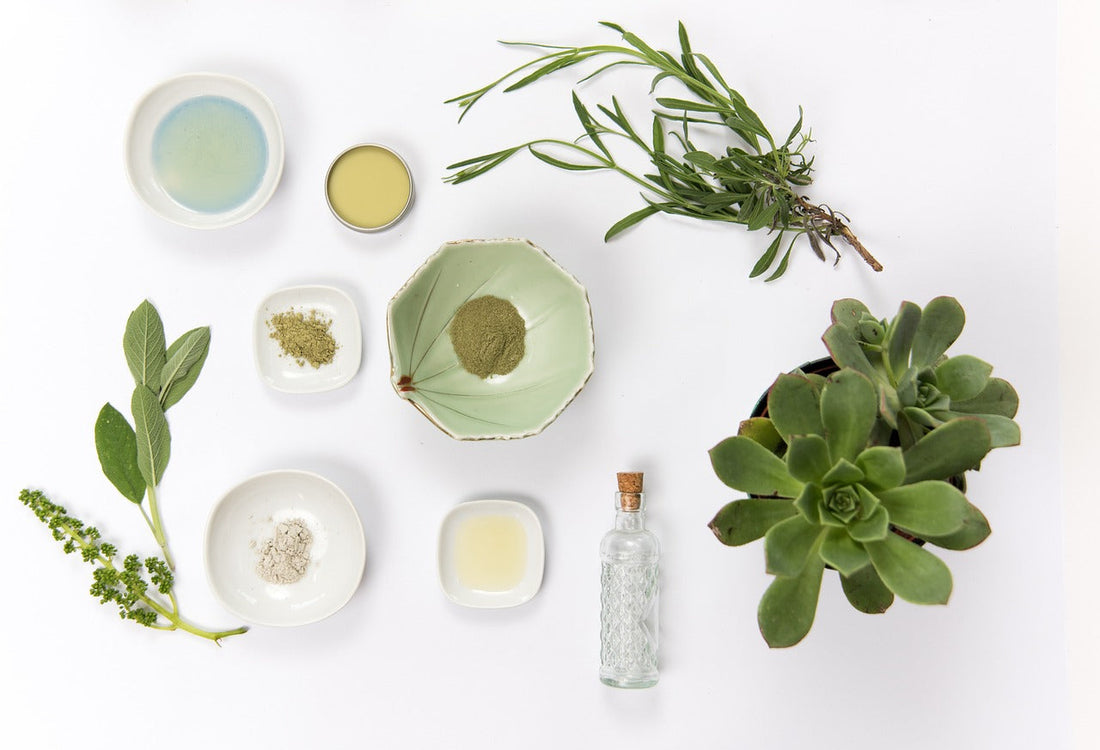
Why choose certified organic cosmetics?
Share
More and more consumers are turning to certified organic cosmetic products, but what really differentiates these products from conventional cosmetics? And why is it beneficial to make this choice for the skin, but also for the environment? In this article, we will explore the main differences between these two types of products and show you the many benefits of choosing organic cosmetics.
1. What is an organic cosmetic?
Certified organic cosmetics are formulated from ingredients from organic farming, without synthetic chemicals, pesticides or artificial fertilizers. They comply with strict specifications defined by recognized labels, such as Cosmos Organic or Ecocert , which guarantee not only the natural origin of the ingredients but also their respect for the skin and the environment. Unlike conventional cosmetics, these products do not contain parabens, silicones, mineral oils, or synthetic dyes and fragrances.
2. The difference between organic and conventional cosmetics
The major difference between organic and conventional cosmetics lies in the composition of the products:
- Natural ingredients vs. synthetic ingredients : Conventional cosmetics often use ingredients derived from petrochemicals (synthetic fragrances, parabens, silicones), which can be irritating to the skin in the long term. Conversely, organic cosmetics are based on natural ingredients such as vegetable oils, butters (such as shea butter ), plant extracts or essential oils .
- Absence of endocrine disruptors and allergens : Conventional cosmetics may contain substances suspected of being endocrine disruptors, allergens or irritants. Organic cosmetics exclude these controversial ingredients and favor formulas that are more respectful of sensitive skin.
- Eco-friendly manufacturing process : Organic cosmetics are manufactured using more environmentally friendly processes, including the use of recyclable or biodegradable packaging and the absence of ingredients that are polluting or toxic to the environment.
3. The benefits of organic cosmetics for the skin
- Respect for the epidermis : Organic cosmetics contain ingredients of natural origin, which makes them particularly suitable for sensitive and reactive skin. Their composition, rich in plant-based active ingredients, helps to hydrate, nourish and repair the skin without causing irritation or allergic reactions.
- Deep hydration : Vegetable oils and natural butters, used in organic cosmetics, have superior moisturizing properties to synthetic mineral oils. They deeply nourish the skin and promote its cell renewal, for a radiant complexion and more supple skin.
- Absence of harsh chemicals : By avoiding synthetic ingredients like parabens or sulfates, organic cosmetics protect the skin from chemicals that are often harsh and irritating.
4. The benefits of organic cosmetics for the environment
- Reduced environmental impact : By using ingredients from organic farming, organic cosmetics help to preserve biodiversity, protect soil, air and water, and limit the use of pesticides and chemicals that are harmful to nature.
- Eco-friendly packaging : The majority of organic cosmetics are packaged in eco-friendly packaging, often recycled and recyclable, thus reducing the production of plastic waste and the impact on global pollution.
- Animal testing prohibited : Organic cosmetic brands are often involved in ethical approaches, such as refusing animal testing. They are thus part of a dynamic that is more respectful of animal welfare.
5. Why choose organic cosmetics?
Choosing organic cosmetics means not only taking care of your skin with gentle and natural ingredients, but also making a strong gesture for the planet. These products respect the environment, health and even ethics, by supporting responsible agricultural practices and eco-responsible manufacturing processes.
In conclusion, certified organic cosmetics are much more than a trend: they represent a sustainable, healthy and conscious approach to beauty. By choosing these products, you are opting for care that is good for your skin and our planet.
Image: Source Pixabay
